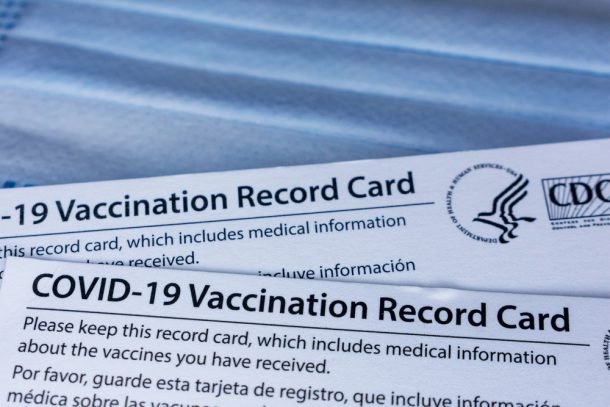Gretchen Gunda Enger/Shutterstock
” data-medium-file=”http://lntransportation.net/wp-content/uploads/2021/11/study-automotive-debt-is-out-of-control-youre-being-swindled-2.jpg” data-large-file=”http://lntransportation.net/wp-content/uploads/2021/11/study-automotive-debt-is-out-of-control-youre-being-swindled.jpg” class=”aligncenter size-large wp-image-1678584″ src=”http://lntransportation.net/wp-content/uploads/2021/11/study-automotive-debt-is-out-of-control-youre-being-swindled.jpg” alt width=”610″ height=”407″ srcset=”http://lntransportation.net/wp-content/uploads/2021/11/study-automotive-debt-is-out-of-control-youre-being-swindled.jpg 610w, http://lntransportation.net/wp-content/uploads/2021/11/study-automotive-debt-is-out-of-control-youre-being-swindled-1.jpg 75w, http://lntransportation.net/wp-content/uploads/2021/11/study-automotive-debt-is-out-of-control-youre-being-swindled-2.jpg 450w, http://lntransportation.net/wp-content/uploads/2021/11/study-automotive-debt-is-out-of-control-youre-being-swindled-3.jpg 768w, http://lntransportation.net/wp-content/uploads/2021/11/study-automotive-debt-is-out-of-control-youre-being-swindled-4.jpg 120w, http://lntransportation.net/wp-content/uploads/2021/11/study-automotive-debt-is-out-of-control-youre-being-swindled-5.jpg 1000w” sizes=”(max-width: 610px) 100vw, 610px”>
Consumer Reports just released the findings of a year-long study looking into the latest trends in automotive loans and car payments. The resulting information highlights just how explosive the debt growth has been over the last 10 years and the arbitrary way in which borrowers are now being treated.
Long story short, we’re all being swindled.
With vehicle prices ballooning and the associated loans becoming longer than ever, dealers and lenders seem to be operating whatever way yields the steepest profit margins with only a modicum of consideration being given to the established frameworks designed to act as a guard rail. This has led to U.S. citizens carrying around a record $1.37 trillion in automotive load debt and customers with good credit being treated no different than those that fall into the subprime category. Sadly, the issue appears only appears to be worsening as new economic perils are only making things more expensive. Meanwhile, data from the Federal Reserve Bank of New York is projecting national auto debt to swell to $1.42 trillion by year’s end.
For the sake of comparison, Americans were only on the hook for $710 billion going into 2011. But the amount of debt being hauled behind us is only part of the story. Consumer Reports has used the study to assert that vehicles are eating up an increasingly large share of household incomes, citing nearly 858,000 loans from 17 major auto lenders.
From CR:
Today, Americans with new-car loans make an average monthly payment approaching $600 — up roughly 25 percent from a decade ago.
Most borrowers pay their loan with no problem. But in recent years, tens of thousands of consumers have found themselves in financial sinkholes after receiving high-interest, longer-term auto loans that, like the Maryland resident, put them at serious risk of default, CR’s investigation found.
This is happening as total auto loan debt held by Americans has increased dramatically over the past 10 years, surpassing $1.4 trillion — more than the gross domestic product of Australia. Because of recently skyrocketing prices for new and used cars, that debt is likely to grow even more.
“You’re not helping somebody to get a car if the odds are they’re going to lose it,” says Kathleen Engel, research professor at Suffolk University Law School in Boston who studies subprime financial products and is also the vice chair of CR’s board of directors. “That’s not getting somebody a car. That’s taking their money.”
Worse yet is that it’s not unheard of to see APRs surpassing 25 percent and lenders don’t seem to care who the customer is. While credit scores were invented back in the 1950s, under the auspices of delivering a standardized and impartial way of determining the creditworthiness of individual customers, the FICO score system used today didn’t appear until 1989. But it’s often been accused of allowing lenders to enact predatory stipulations on loans going to those with less-than-desirable numbers, particularly as the system has seen broader use.
Credit scores no longer apply exclusively to mortgage applications and loans. They’re now being included as part of some rental agreements and even job applications. It’s gotten to the point where we’ve begun to see pushback, often with claims that scoring doesn’t accurately represent debt risk and functionally serves to keep certain individuals from achieving upward mobility. While we’re not going to be diving into that, CR has asserted that the arbitrary nature of credit scoring has become a serious issue.
The outlet suggested that dealers and lenders are setting interest rates based upon something other than the standard loan underwriting practices. Instead, they’re conducting business in whatever manner “they think they can get away with” because many borrowers have no idea that they can (and should) negotiate terms or pit lenders/dealers against each other in hopes of getting a better bargain. Some of this is down to the legal and regulatory disparities between states. Though the outcome is the issue of focus because it’s in danger of permanently upending the economy when a meaningful percentage of the population can no longer afford to drive:
For one thing, it makes it harder to build the savings needed to purchase a car outright, says Pamela Foohey, a professor at the Cardozo School of Law in New York City who has published several studies on auto lending. Longer-term car loans — the average is now about six years — compound the problem, she says, trapping people in debt to fund a necessity like transportation.
“The trap for consumers, of course, is a boon to lenders,” Foohey says.
Falling behind on car payments can lead to repossession, triggering a cascade of other problems.
Lana Ash of Oklahoma and Dennis Lamar of Connecticut both had their vehicles repossessed last year in the middle of the pandemic, after getting stuck with high-APR car loans that proved to be more expensive than they could afford. Without a car, Lamar had to bum rides to doctors’ appointments. Ash had to take out another loan to fix a busted transmission on an old car.
“To this day, I still get emotional and upset about it,” Ash says.
Many Americans have faced similar outcomes. By spring 2021, an estimated 1 in 12 people with a car loan or lease, or almost 8 million Americans, were more than 90 days late on their car payments, according to a CR analysis of data from the Federal Reserve Banks of New York and Philadelphia.
The resulting scenario has left us with a non-comparative automotive market where big businesses and banks can more effectively take advantage of their own customers. CR claimed that 46 percent of the 800,000+ loans reviewed were underwater, with owners owing $3,700 more (on average) than what the vehicle was actually worth. But we’re still just scratching the surface on how dark this is all becoming.
Consumer Reports utilized information disclosed to the U.S. Securities and Exchange Commission in 2019 and 2020 to investors of auto loan bonds, rounding out its research pool with thousands of pages of regulatory filings, court records, trade publications, industry reports, financial records, public documents obtained through the Freedom of Information Act, and interviews with more than 90 federal and state regulators, advocacy organizations, consumers, lawyers, legal experts, academics, and industry groups.
That data led to a few realizations, starting with the fact that your credit score is largely arbitrary when it comes to how vicious your auto loan is going to be. While there was a prevalence of individuals with scores exceeding 720 to receive better terms, literally everyone (including subprime borrowers) was subjected to APRs ranging between zero and 25 percent. CR likewise worried that lenders were intentionally putting customers into loans they couldn’t possibly afford, with over half of all subprime borrowers getting stuck with payments that were higher than 10 percent of their annual income. But almost none of the lenders bothered to check up on that, resulting in 96 percent of all auto loans going to people who never had their income verified.
This has likewise resulted in a surge of delinquencies over the last few years and a staggering increase in the amount of debt being carried around by Americans. But perhaps most alarming is how nobody seems interested in adhering to the underwriting practices that were supposedly put into place to keep things running smoothly in the fairest possible manner. Credit scores seem to be used to punish the subprime market without really offering much protection to those with good scores.
Consumer Reports said that it reached out to all 17 lenders covered in the analysis, in addition to industry groups like the American Financial Services Association and the National Automotive Finance Association. Some opted not to respond, with everyone declining to answer every question posed. Most also made assertions that consumers have the ability to make informed decisions for themselves and that there’s a wealth of information online for those interested.
Industry groups and financial institutions likewise claimed that auto lending was sufficiently regulated in the United States, suggesting that CR research failed to “contain enough information to accurately compare the loans similarly situated borrowers received.” Double-digit interest rates were dismissed as anomalies while the increased number of delinquencies and repossessions were dismissed entirely as they saw themselves as the only way for some customers to get vehicular loans.
“Consumers understand that rates will vary from creditor to creditor,” said Ed McFadden, a spokesperson for the American Financial Services Association. “They have ample opportunity to research and shop.”
Considering extended loan terms and a slightly higher interest rate can effectively add thousands onto even a modestly priced vehicle, it’s not difficult to see why CR is so critical of modern lending practices. There’s really no other way to spin this. Consumers are either morons, unworthy of being cut fairer deals, or financial institutions (and the dealership intermediaries) are predatory assholes that never seem to assume responsibility for their actions. And it’s all going to continue to be exacerbated as vehicle prices increase and automakers attempt to shift toward a direct sales model that further nullifies customers’ ability to negotiate payments.
This is like how modern safety requirements technically make it borderline impossible for new manufacturers to exist or any of my other anti-regulatory rants. CR has identified several industries working together to use the existing principles in whatever way yields them the most money. If you have some spare time, I highly suggest reading the entire report and inspecting the relevant investigative materials. It’s quite good, loaded with specific examples of the aforementioned problems, and written by Ryan Felton — who is adept at putting together these kinds of stories.
[Image: Gretchen Gunda Enger/Shutterstock]
Become a TTAC insider. Get the latest news, features, TTAC takes, and everything else that gets to the truth about cars first by subscribing to our newsletter.


